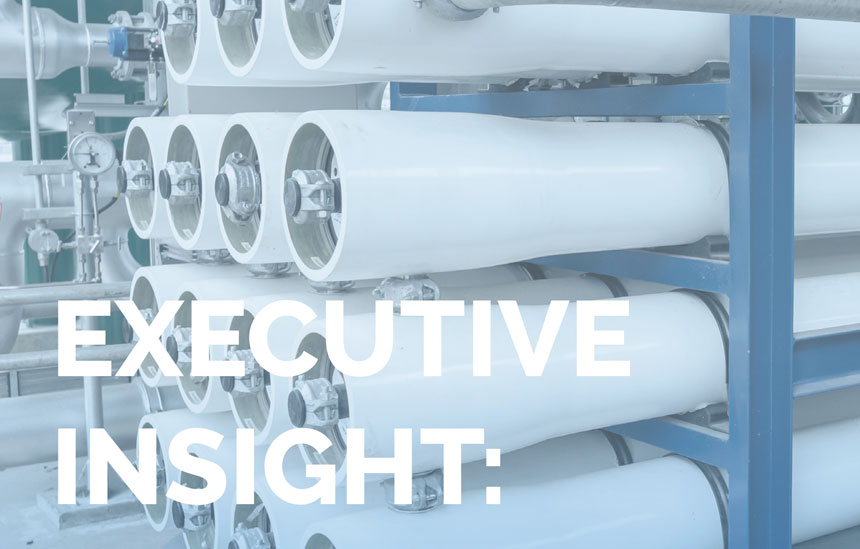Published on IDRA Global Connections Winter 2020 Issue
- On the fiftieth anniversary of one of the sectors leading companies, IDRA Secretary General talks with Silvio Oliva, CEO, Fisia Italimpianti, Salini Impregilo Group, to share his reflections on the company’s achievements and his vision of the future.
Q: IDRA applauds Fisia Italimpianti on its fiftieth anniversary of outstanding service to the sector. In celebrating this achievement, could you share with our readers some facts about the history of the company and milestones and strengths in reaching such success?
A: As you mentioned, Fisia Italimpianti is one of the oldest companies in the desalination sector. Fifty years ago we put into service the first desalination unit for an important industrial complex in Italy. Since then we have built many other plants, most of them still in operation, which is a true testament to the reliability of both our design and execution, which are for sure the most valuable features of our long history.
To add to that, for many years Fisia Italimpianti has been one of the leading companies in the evaporation technology process, and recently shifted to membrane technology, in line with the market requirements. As an EPC contractor with a well-known reputation, we plan to repeat this success using membrane technology.
Q: How large is the combined capacity of desalination plants supplied by Fisia Italimpianti?
A: The total contracted capacity for both Evaporation and Membrane technologies exceeds 4 million cubic meters per day, with most of them in operation even today. I would also like to mention, by way of example, that more than half of the potable water for Dubai comes from plants built by Fisia Italimpianti in the last twenty years.
Q: Looking forward, what would you say are the leading opportunities and challenges facing the desalination market?
A: For sure we are in currently experiencing a brilliant phase of the market, with many new plants in construction and many more to come: this is a very positive trend after several years of stagnation in the sector. At the same time, the competition has become very tough and the market is driving a drastic decrease in the level of prices, something which could not be imagined a few years ago. This may lead to some change in the overall competition, with some companies withdrawing (partially or totally), and some others at risk of being hurt by the low prices and the increased risk profile. Probably in a couple of years we will see the effects of this repositioning with the survival of EPC contractors becoming a mission for the whole industry.
Q: The United Nations reports that two-thirds of the global population will face water scarcity by 2025, what do you believe is the role of advanced water treatment technologies and solutions in offsetting this critical water scarcity forecast and what are the challenges to implementing solutions?
A: The water industry is aware of its role in contributing to mitigate these disastrous effects, and all together (Technology Providers, Equipment Manufacturers, EPC Contractors and Operators) we are helping in the reduction of the overall cost of the water produced through the desalination process, something which will make it affordable to many countries as compared to the past. Together with the desalination, the other two key factors will be the reduction in water consumption and the increase in water reuse measures.
The combination of these three elements will alleviate to some extent the water scarcity in the short and medium term, while for a more durable solution a technology upgrade and an important trend in legislation will be required.
Q: In which geographical region do you see the highest market growth?
A: In terms of capacity, the GCC countries will dominate the next few years, to cover increased demand as well as to replace less efficient plants. And, in the medium term, we will see a growing demand in many African countries and in some specific areas of other continents.
Q: As an industry leader, what advice would you give to the young leaders group of the IDRA who are working to build a vibrant career in our sector?
A: First, I would suggest them to keep technology and innovation (in a broad sense) at the forefront of their professional career. We are in the making of a water revolution and the young leaders should drive this change rather than wait for things to happen. Yet, at the same time, I would encourage them to look at social responsibility as a long-term value, in my opinion this will be a distinctive feature for the people who want to accompany our industry into the future.

